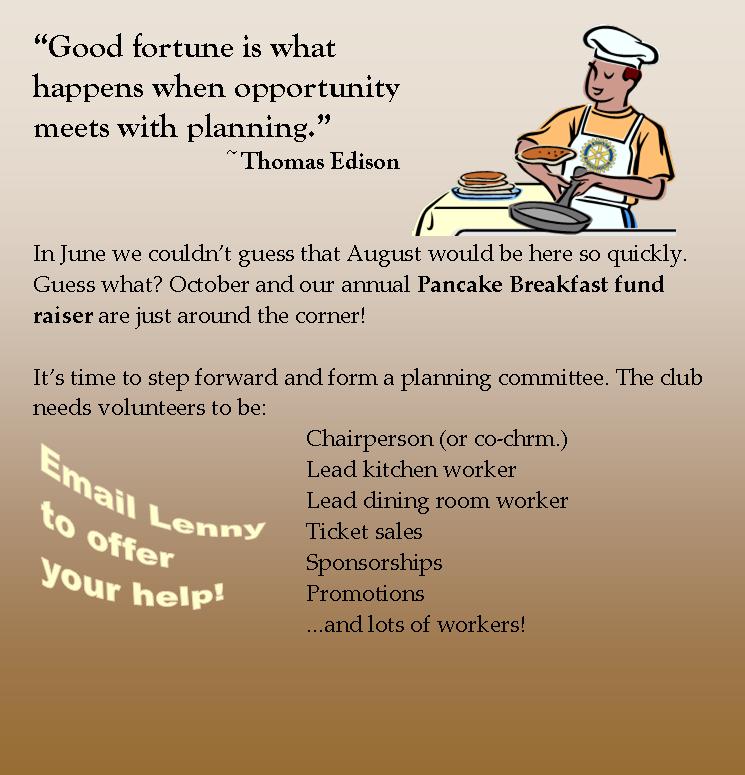Month: July 2012
Rotary reduces infant mortality in Egyptian hospital
Rotarians in Egypt and the United States are helping doctors at a pediatric hospital in Cairo save the lives of hundreds of premature babies each year through the gift of lifesaving neonatal equipment. Using a Rotary Foundation grant, the Rotary clubs of Heliopolis, Egypt and Minneapolis, Minnesota purchased several pieces of equipment for the intensive care unit of Abou El Reesh Children’s Hospital, for use in its gastroenterological department. The hospital treats one million patients per year, suffers from overcrowding, and lacks equipment. Most of the hospital’s patients are from poor or underserved families. The mortality rate is 25 percent among all patients and five percent for gastric patients. Wanting to reduce infant deaths, the Heliopolis Rotarians and its Minneapolis partner club, applied for a Foundation grant and raised $23,000 which purchased a defibrillator, ventilator, infusion pump, syringe pump, and diagnostic devices. The Rotarians also advised hospital staff on how to use and maintain the equipment. They plan to conduct a monthly health session to promote proper sanitation and nutrition. The project falls within Rotary’s maternal and child health Area of Focus. “Our first objective for this project was to make an impact to improve child and maternal health and reduce child mortality,” says Ayoub Mahmoud Ayoub, a member of the Heliopolis club. “Our second objective was to promote Rotary’s good work.” In Egypt, the public lacks knowledge and is skeptical about Rotary. Changing that perception, he says, is important. “Our mission with this project and future undertakings is to show that Rotarians help those in need.”
Ten lessons learned from the Future Vision pilot
—RI News, 7/2012
As The Rotary Foundation prepares for the global launch of its new grant model next July, a number of changes are being made based on feedback from Future Vision pilot districts.
Rotarians can expect to see these improvements in coming months:
1. A user-friendly online system for qualification and application
2. A streamlined global grant application process with clearly-defined expectations and a list of resources to help applicants get started
3. Clear guidelines on how to meet global grant requirements for area of focus and sustainability
4. Expanded criteria in two areas of focus: basic education and literacy now includes secondary education, and disease prevention and treatment covers prevention of noncommunicable diseases and health promotion; in addition, all areas of focus allow certain types of infrastructure projects
5. The elimination of a requirement that applicants for global grant scholarships provide proof of language testing
6. Adjustments to the composition of vocational training teams, reducing the minimum number of travelers to three and allowing, with Foundation approval, the team leader to be a non-Rotarian
7. Funding for international travel to implement global grant projects
8. An option for a contingency fund of up to 20% of the total district grant spending plan
9. A reduction in the minimum budget for a packaged grant from $50,000 to $30,000
10. The addition of a district stewardship subcommittee to ensure
careful management of grant funds
The Foundation expects these improvements to help Rotarians develop projects that meet the eligibility requirements for global grants, thus reducing the time from application through payment.
Media spotlights polio eradication, Rotary’s role
— RI News, 7/2012
The Global Polio Eradication Initiative, including Rotary’s role as a spearheading partner, continues to generate coverage in the news media and on social networks. The Washington Post ran an editorial in support of the initiative, which mentioned Rotary’s achievement in raising more than US$200 million to match the $355 million in challenge grants from the Bill and Melinda Gates Foundation. A “This Close” public service announcement on international cricketing superstar Shahid Afridi of Pakistan received 634 likes, 10,074 shares, and 54 comments on the End Polio Now Facebook page. Earlier this year, news of India’s milestone achievement of going one year without polio and Rotary’s leading role garnered coverage in the Associated Press, The Economist, Financial Times, New York Times, Reuters, and other major media.



